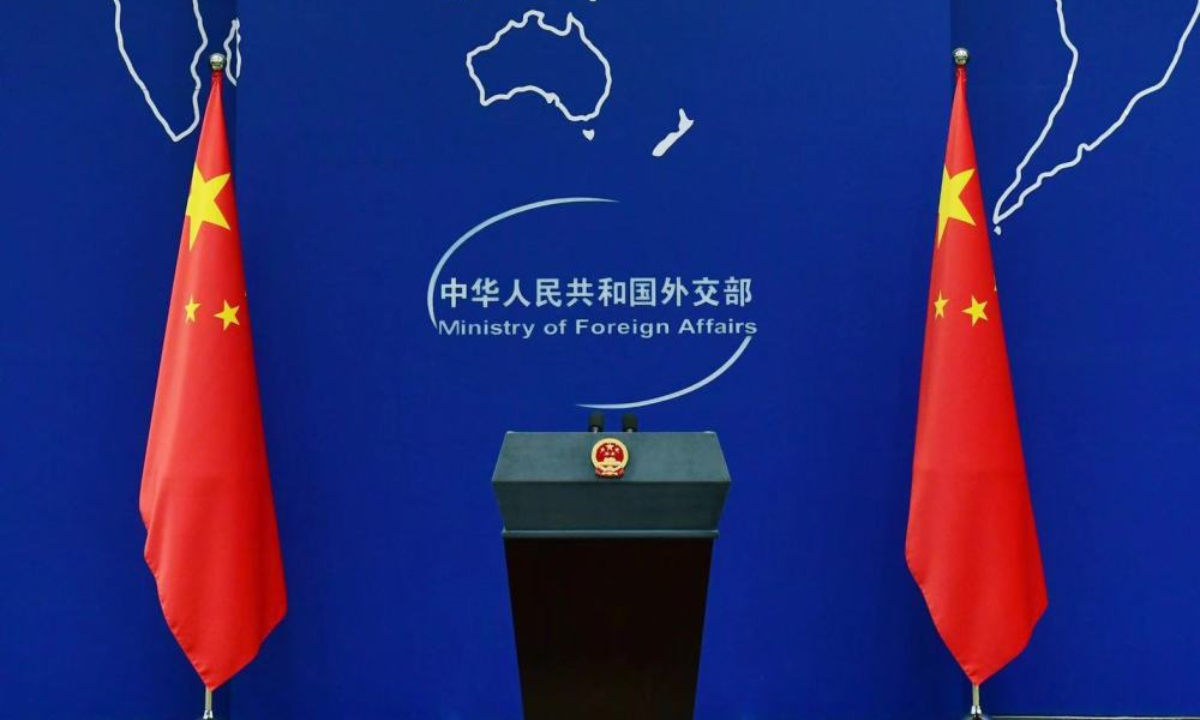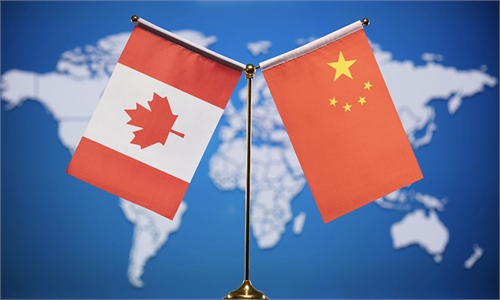China imposes countermeasures against two Canadian organizations and 20 associated personnel, effective on December 21, says Chinese FM

Photo: Chinese Foreign Ministry
China has decided to impose countermeasures against two Canadian organizations as well as 20 personnel from these organizations in accordance with the Anti-Foreign Sanctions Law, according to a statement published on the website of the Ministry of Foreign Affairs on Saturday. The decision took effect on December 21, 2024."China's countermeasures have a very clear delineation of responsibility, aimed at non-governmental organizations that ignore facts, and Canada should not keep playing an inglorious role in spreading misinformation targeting China," Wang Jiang, a deputy director of the Institute of China's Borderland Studies at Zhejiang Normal University, told the Global Times on Sunday.
The countermeasures include freezing all movable and immovable property and other types of assets of the two Canadian organizations "Uyghur Rights Advocacy Project" and "Canada Tibet Committee" within China's territory and prohibiting organizations and individuals within China's territory from engaging in any transactions or cooperation with them.
Additionally, movable and immovable property and other types of assets of certain individuals from the two Canadian organizations will be frozen within China's territory. Organizations and individuals within China are prohibited from engaging in transactions, cooperation, or other activities with them personally. In addition, they will not be issued visas and will be denied entry into China, including the Hong Kong and Macao Special Administrative Regions.
Wang pointed out that in recent years, the West has continued to spread misinformation targeting China's Xinjiang. Canada has played an inglorious role in this process, constantly hyping and slandering human rights situation in Xinjiang and Xizang to attack and smear China. Such misinformation campaign forms the broader context of the current events.
Current Canadian government policies and its stance toward China differ significantly from those of the past, adopting a more aggressive and confrontational approach, especially on issues related to Xinjiang and Xizang, Wang said.
"Canada's actions are an attempt to use human rights issues in Xinjiang and Xizang to enhance its international presence and strengthen its influence in global diplomacy and ideological discourse," he said.
Some Western countries have begun to adopt a more pragmatic attitude toward China in their engagements, as they started to realize playing the "human rights card" brings no significant benefits to their national interests. In contrast, Canada has gone in the opposite direction, becoming increasingly conspicuous, Wang added.
A total of 20 individuals are involved in the measures. Among them, personnel related to the "Uyghur Rights Advocacy Project" include Executive Director Mehmet Tohti, Policy and Advocacy Director Jasmine Kainth, legal advisors David Matas, Sarah Teich, John Packer, Clive Ansley, Yonah Diamond, Justine Bernatchez and Linden Dales, and Policy Advisors Charles Burton, Margarett Mccuaig Johnston, Marcus Kolga and Scott Simon, as well as research advisors Conor Healy and Geoffrey Aharon, making a total of 15 people.
Personnel related to the "Canada Tibet Committee" include Chair Samphe Lhalungpa, Vice Chair Luisa Durante, Executive Director Sherap Therchin, Board Member Eliza von Baeyer, and Community Engagement Manager Youngdoung Tenzin, making a total of 5 people.


